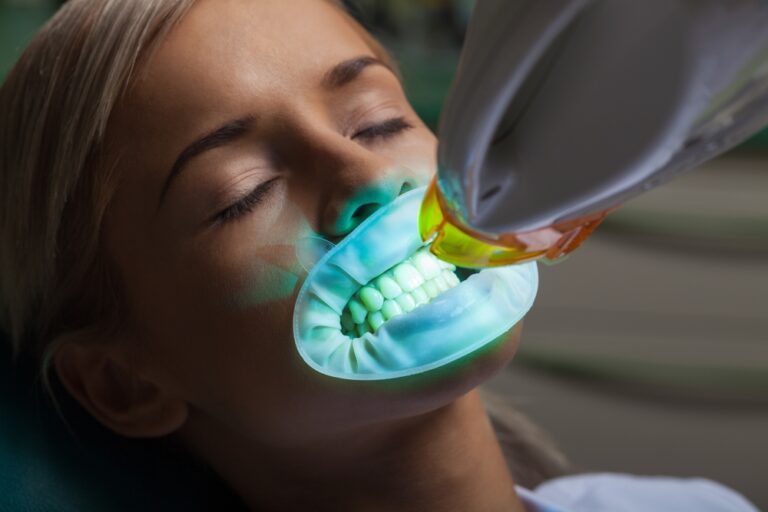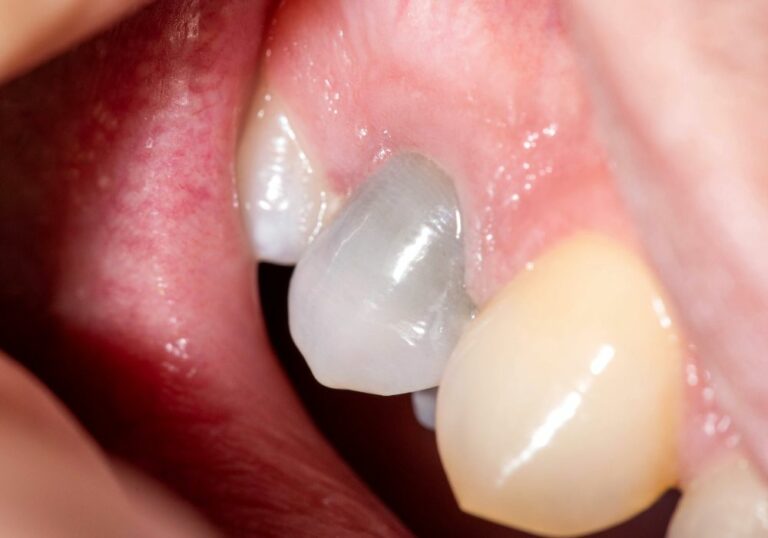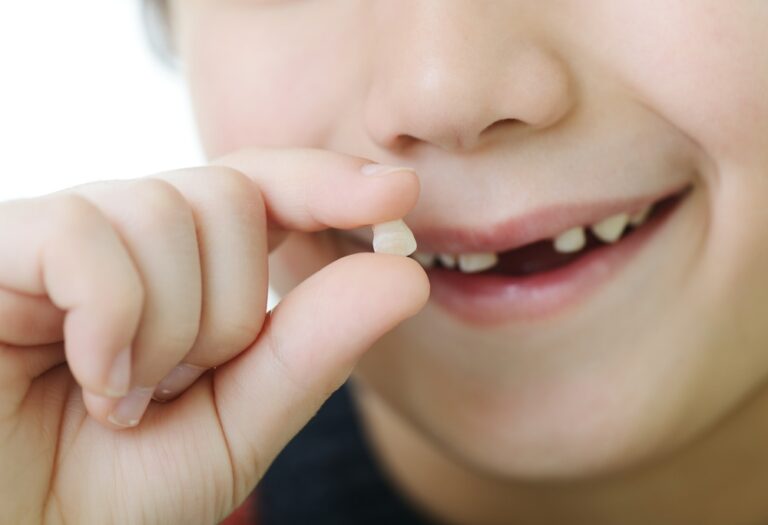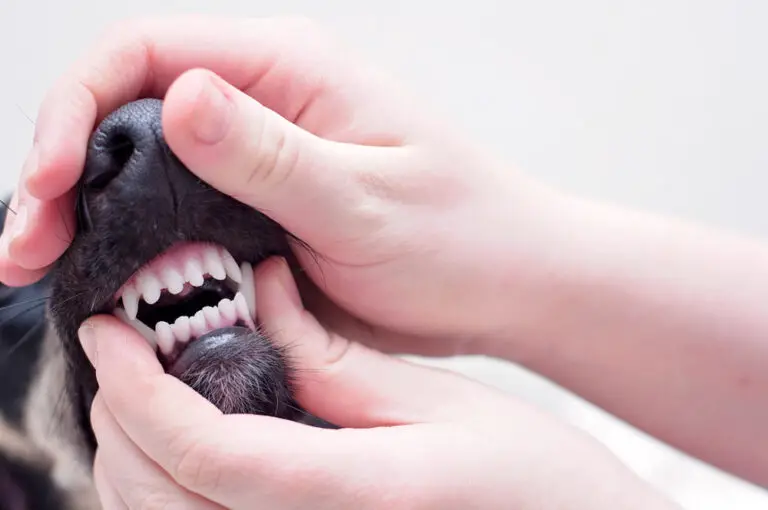Our teeth endure a lot every single day. From the food and drinks we put in our mouths to grinding and clenching our teeth, it’s no wonder many people experience various types of teeth damage over time. Stains, chips, cavities, enamel erosion, and more are all common issues that can arise. Thankfully, there are many natural remedies and solutions to help reverse and restore tooth damage and improve oral health.
What causes teeth to become damaged?
Our teeth face assault on a daily basis from acidic foods and beverages, trauma, wear and tear, and other factors. This constant exposure can lead to various types of damage to the tooth enamel, dentin, and pulp:
Stains
Darkly pigmented foods and drinks like coffee, black tea, red wine, and certain types of berries can easily stain the enamel of teeth. While enamel is designed to protect against some staining, it is not completely impenetrable against absorbing deeper stains over time. These stains primarily affect the outermost layer of the teeth.
Chips and Cracks
Crunchy foods like popcorn kernels, hard candies, nuts, seeds, and even chewing on ice can crack or chip enamel. Trauma from sports injuries, falls, accidents, or blows to the mouth can also damage enamel or cause fractures in teeth. These cracks allow bacteria, plaque, and sugars to penetrate deep into the teeth leading to decay.
Cavities
When bacteria, food debris, plaque, and acid accumulate on teeth, they produce acids that demineralize and dissolve the tooth’s enamel. This causes cavities – holes in the teeth. If left untreated, cavities become bigger, deeper, and more painful and can reach the soft pulp inside a tooth.
Acid Erosion
Frequent exposure to acidic foods and drinks wears away at the enamel over time. Beverages like sodas, sports drinks, and citrus juices contain high amounts of acids that can thin and soften the enamel surface of teeth. This acid erosion makes teeth more susceptible to cavities and decay.
Tooth Grinding
Bruxism, or grinding and clenching of teeth primarily while sleeping, wears down enamel. This compresses the chewing surfaces of teeth making them thinner and more vulnerable to fractures. Jaw clenching and teeth grinding while sleeping is one of the leading causes of enamel thinning and damage over time.
5 Natural Remedies to Reverse Teeth Damage
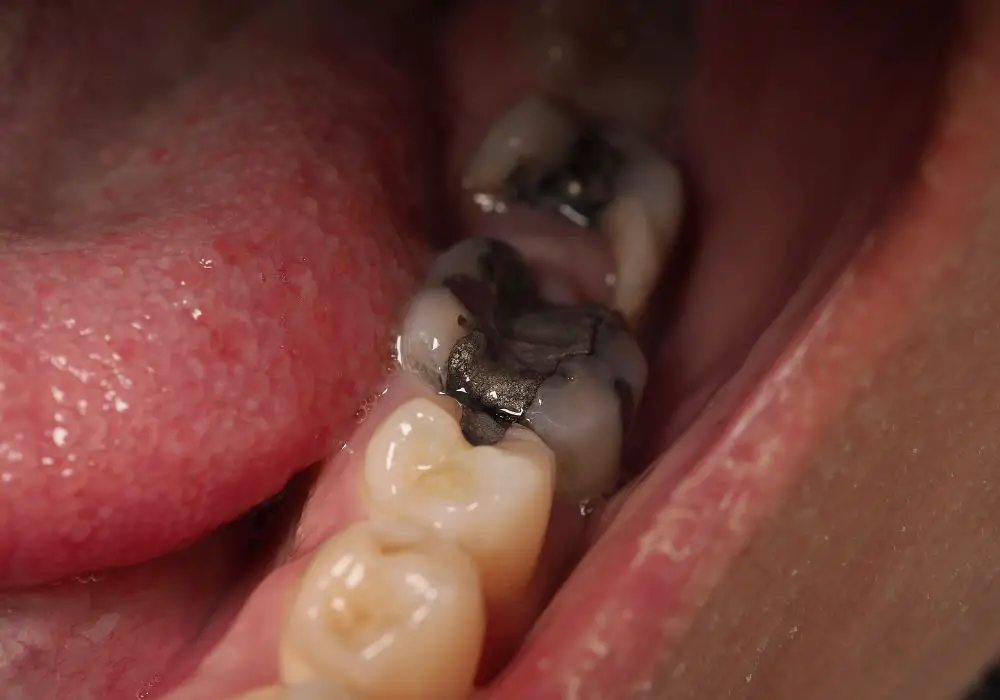
The good news is there are many natural remedies that can help strengthen and remineralize enamel, combat bacteria, reduce stains, prevent cavities, and restore minerals. Here are 5 of the top natural solutions:
1. Oil Pulling
Oil pulling is an ancient practice used in Ayurvedic medicine that involves swishing oil in the mouth for up to 20 minutes then spitting it out. Studies have shown oil pulling with coconut, sesame, or sunflower oils can reduce plaque buildup, gingivitis, and the number of microorganisms that cause cavities and gum disease. The oils seem to have an antiseptic cleansing effect on the oral cavity.
How to Do Oil Pulling:
- Choose a high-quality, organic, unrefined oil – coconut and sesame work well.
- Place 1 tablespoon of oil in the mouth, swish and pull it gently between the teeth for 15-20 minutes. Do not swallow the oil.
- The oil will become thinner and milky looking as the bacteria and toxins in your mouth are drawn into the oil.
- Spit the oil out into the trash can and rinse well with warm water. Avoid swallowing the oil.
- Oil pull first thing in the morning on an empty stomach before eating or drinking anything.
- Try to do this daily or at minimum 2-3 times a week to see best results.
2. Green Tea
Green tea is rich in antioxidants called catechins that have been shown in studies to destroy cavity-causing bacteria like streptococcus mutans. The antioxidants in green tea also disrupt the biofilm on teeth which allows bacteria colonies to thrive. Biofilms are a common cause of plaque buildup.
How to Use Green Tea for Oral Health:
- Brew a cup of organic green tea and allow it to cool to a comfortable temperature. Do not add sugar.
- Take a sip and swish the tea around in your mouth, pulling it between teeth before swallowing.
- Try to hold it in your mouth for at least 1 minute to allow the active compounds to penetrate.
- Drink 1-2 cups of unsweetened green tea per day for the dental benefits.
3. Aloe Vera
Aloe vera gel contains antibacterial, anti-inflammatory, healing compounds perfect for oral health. The enzymes, vitamins, and minerals in aloe vera can help kill bacteria that causes cavities, reduce inflammation and swelling of gums, and enhance healing of mouth ulcers, wounds, and other oral infections. Research also indicates aloe vera is as effective as toothpaste at eliminating dental plaque.
How to Use Aloe Vera for Teeth and Gums:
- Use 100% pure, organic aloe vera gel from the inner leaf pulp, available at health food stores.
- Scoop out about 1 tablespoon of gel.
- Gently massage the gel along the gums, teeth, and tongue, focusing on areas of pain or inflammation.
- Let it sit for 2-3 minutes then thoroughly rinse mouth with warm water.
- Apply 1-2 times per day for best results. Can also drink aloe vera juice to benefit teeth and gums.
4. Baking Soda
Baking soda balances the pH levels in the mouth, helping neutralize acids that erode enamel and cause cavities. It gently removes surface stains and polishes away plaque as well. Due to its fine gritty texture and antimicrobial properties, baking soda inhibits the growth of cavity-causing bacteria like streptococcus mutans.
How to Use Baking Soda:
- Mix a small amount of baking soda with a bit of warm water to form a paste.
- With a soft-bristled toothbrush, gently brush the baking soda paste onto teeth, gums, and tongue.
- Rinse very thoroughly with warm water to eliminate any residue.
- Limit use to 1-2 times per week at most, as overuse of baking soda can erode enamel over time.
5. Black Tea
Black tea contains more polyphenols and tannins than other types of tea. Tannins help stain surfaces and thus can gradually help cover up existing stains on teeth with regular use. The polyphenols in black tea also help prevent cavity-causing bacteria from adhering to teeth.
How to Use Black Tea for Teeth:
- Brew a strong cup of organic black tea and let it cool to room temperature or lukewarm.
- Take a mouthful and swish it around for 1-2 minutes, allowing it to coat all tooth surfaces. Focus on stained areas.
- Spit out and rinse mouth thoroughly.
- Do this a couple times a day to help reduce the appearance of stains.
Supporting Your Natural Teeth Restoration
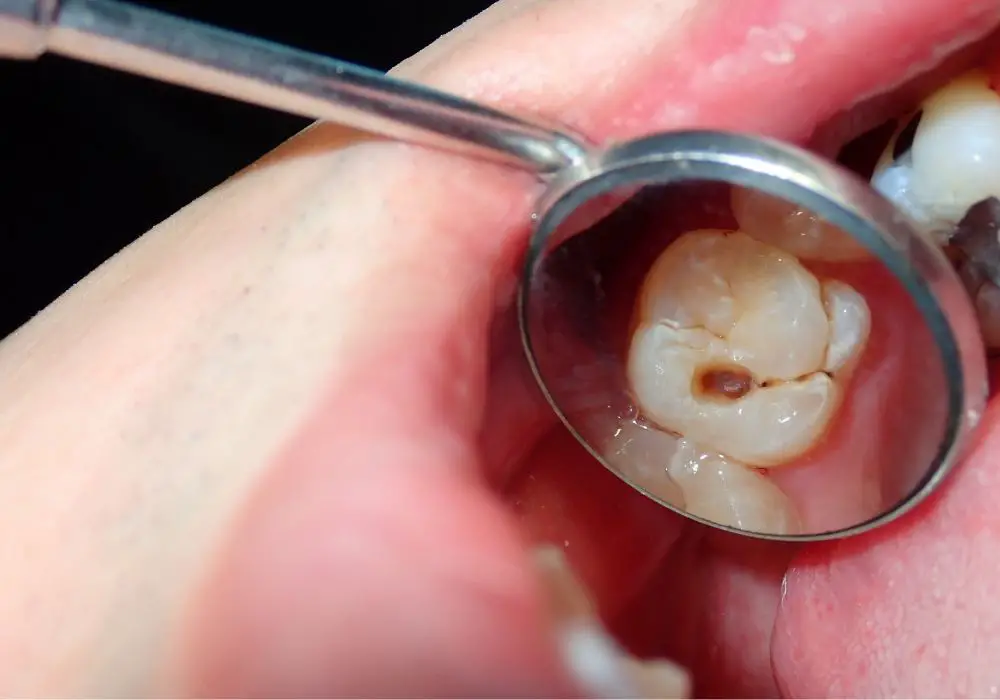
While these natural remedies can certainly help reverse damage and remineralize teeth, they work best when combined with a daily oral healthcare routine. Here are some tips for supporting your teeth restoration:
- Brush Teeth Twice Daily – Use a soft-bristled toothbrush and brush for 2 minutes, morning and night. Avoid brushing right after eating acidic foods when enamel is softened.
- Floss Teeth Daily – Flossing removes plaque and debris between teeth and areas brushing can’t reach. This prevents tartar buildup and cavities between teeth.
- Use an Antiseptic Mouthwash – Swish daily with an alcohol-free, antiseptic mouthwash to eliminate bad breath and bacteria.
- Chew Xylitol Gum – Chewing gum boosts saliva flow, washing away acid and bacteria. Xylitol gum helps remineralize enamel and prevents bacteria from adhering to teeth.
- Stay Hydrated – Drink plenty of water throughout the day to prevent a dry mouth. Dehydration allows bacteria to grow.
- Visit the Dentist Regularly – See your dentist every 6 months for professional cleanings and oral exams. Identify issues early and maintain your restoration.
- Consider MI Paste – This over-the-counter dental product contains Recaldent to replenish minerals and strengthen enamel.
Eating for Healthy Teeth
Nutrition plays a huge role in oral health. Focus on eating a balanced diet full of tooth-strengthening vitamins and minerals. Be sure to include:
- Crunchy Fruits and Vegetables – Foods like apples, carrots, celery, and cucumbers help clean teeth and stimulate saliva.
- Calcium-Rich Dairy – Milk, cheese, yogurt, and other dairy provide calcium and phosphorus for strong teeth.
- Vitamin D Foods – Fatty fish, eggs, and vitamin D-fortified foods are key for calcium absorption.
- Vitamin C Foods – Citrus fruits, broccoli, tomatoes, and leafy greens provide vitamin C to regenerate collagen and strengthen enamel.
- Sugar-Free Foods – Limit sugar as much as possible, as sugar feeds the bacteria that cause cavities and erosion.
Avoid frequent snacking throughout the day and limit acidic drinks like soda, sports drinks, and juice. Drink water and unsweetened tea instead. Time your snacks and restrict them to mealtimes.
When to See a Dentist?
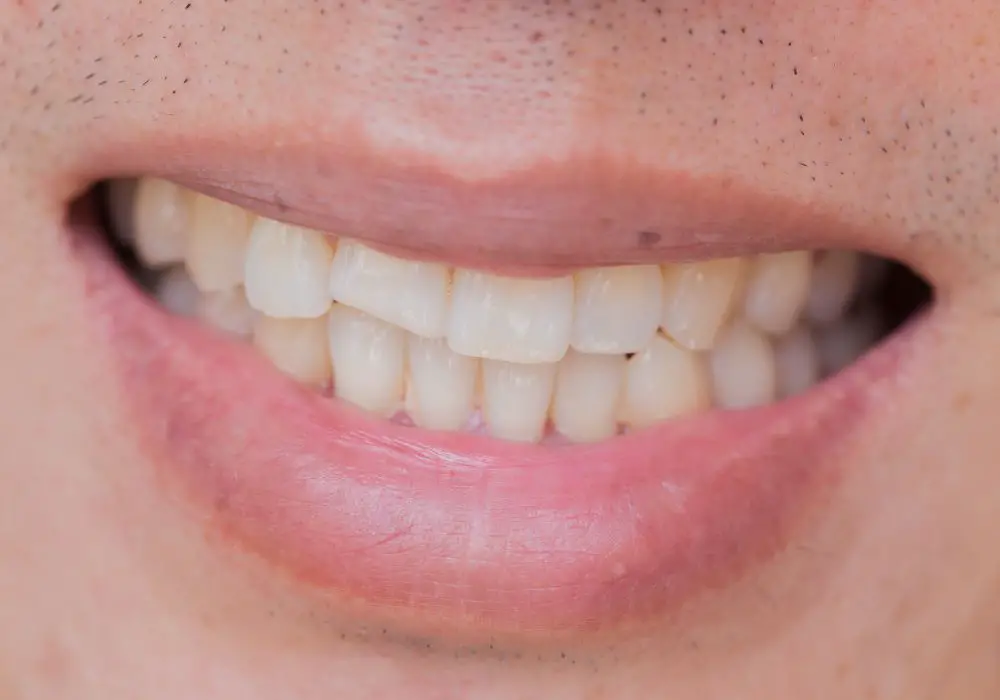
While natural remedies can fix minor cosmetic issues like surface stains, some cases of teeth damage require professional dental treatment:
- Deep cavities must be treated using dental fillings. If they reach the nerve, you may need a root canal.
- Severely cracked, broken, or fractured teeth often require crowns or extraction.
- Tooth erosion from bulimia or acid reflux needs to be addressed and monitored by your dentist.
- Knocked out permanent teeth need to be reimplanted by your dentist ASAP for the best prognosis.
- Wisdom teeth extractions should only be performed by an oral surgeon or dentist.
- Seek help for teeth grinding or misalignment causing excessive wear. May need a night guard or orthodontics.
Don’t delay in seeing a dentist if you have throbbing tooth pain, sensitivity, swelling, or other concerning symptoms. Ignoring symptoms allows more severe damage to occur.
Restore Your Smile Naturally
Reversing tooth damage and erosion takes time and diligence but incorporating oil pulling, green tea, aloe vera, and baking soda along with tooth-friendly nutrition into your routine can help strengthen and remineralize enamel while improving your oral health. Pay attention to your teeth and seek professional dental care when required. Follow these natural tips consistently and your smile will gradually become healthier and more beautiful over time.
FAQ
Here are some common questions and answers about reversing teeth damage naturally:
Is it possible to remineralize teeth naturally?
Yes, it is possible to remineralize and repair enamel and dentin through a process called remineralization. Substances like fluoride, calcium, and phosphate help redeposit minerals into weakened areas of teeth. Oil pulling, green tea, aloe vera, and xylitol gum also promote remineralization.
What foods remove stains from teeth?
Crunchy fruits and vegetables are natural stain removers. Apples, carrots, celery, and cucumber scrub stains off teeth. Strawberries and pineapple also contain enzymes that whiten teeth. Avoid staining foods like coffee, red wine, and dark berries.
How can I fix enamel damage from grinding my teeth?
See a dentist for a nightguard to prevent further damage from bruxism. Rinse with baking soda and fluoride mouthwash. MI Paste contains minerals that rebuild enamel. Vitamin C, calcium, and collagen supplements also strengthen enamel.
I have acid reflux disease. How can I stop the erosion of my teeth?
Talk to your doctor about managing GERD symptoms with medication and diet changes to reduce acid. Drink water or chew gum after reflux episodes to neutralize acid and remineralize teeth. See your dentist for checkups every 3-6 months.
Are there any warnings or precautions for these natural remedies?
Oil pulling and aloe vera are generally safe but discontinue use if they cause nausea or diarrhea. Pregnant women should avoid oil pulling. Baking soda and tea can stain teeth with overuse. See your dentist immediately for injuries or severe tooth pain.

